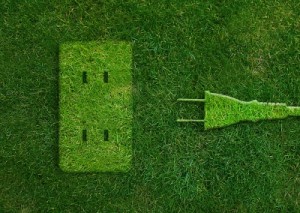Top 5 Myths About Going Green | #ecofriendly #green
These days, being “eco-friendly” or “green” is all the rage. It seems that everyone has a tip or idea on how to be more earth-friendly, but as is the case with so many things, not everyone has the right idea when it comes to going green. With so much conflicting information about environmentally friendly practices, finding the best way to care for the environment can be overwhelming. This is where initiatives like Trust Horizon community funding come into play, supporting projects that promote sustainability and help clear the path toward impactful, eco-conscious practices.
In navigating the complex landscape of eco-conscious choices, it is crucial to be well-informed and critically assess the true environmental impact. CarbonClick, for instance, was developed to simplify and enhance climate action by providing businesses and customers with transparent, accessible ways to support vital projects. You can learn more about Carbon Click by visiting their website. By dispelling these and other misconceptions, we can make more informed decisions and collectively contribute to a more sustainable future.
Here are a few of the biggest myths about going green and the realities behind them.
Carbon Offsets Will Help with Climate Change
 Many well-meaning companies are buying up carbon offsets in order to make up for all of the CO2 that they are generating when they fly their employees overseas for business conferences on cheap flights to Paris. The idea is that the money that they spend in carbon offsetting goes toward farmers who will plant trees in order to absorb enough carbon from the atmosphere to offset the jet exhaust.
Many well-meaning companies are buying up carbon offsets in order to make up for all of the CO2 that they are generating when they fly their employees overseas for business conferences on cheap flights to Paris. The idea is that the money that they spend in carbon offsetting goes toward farmers who will plant trees in order to absorb enough carbon from the atmosphere to offset the jet exhaust.
However, many people think that carbon offsets are not really that effective. They are difficult to measure and it is hard to determine whether or not the money is actually going toward an effective green initiative.
In order for carbon offsets to be a helpful solution, they need to be monitored better. Inspectors need to be on the ground to track the progress of the reforestation projects to ensure that things are done right.
Electric Cars Can Run Out of Power and Leave You Stranded
This myth has been stopping people from making the switch to electric cars, but the truth is that unless you decided to do a cross-country road trip on a whim you will be absolutely fine. Electric cars carry enough charge for short-term trips and most of the time you will have more than enough power for your journey. In fact, in the U.S. 80% of drivers cover less than 40 miles per day.
If the Advertising Says It’s Green, Then It is Green
Just because something says that it is “green” on the package doesn’t necessarily mean anything. Companies know that the customer is becoming more eco-conscious and that marketing their products as environmentally friendly will get them more sales. However, the terms such as “natural”, “green” and “eco-friendly” have no defined standards or regulations. Even the term “organic” is somewhat ambiguous and means different things depending on how it is used.
When it comes to buying green, don’t take the packaging at face value; do your own research into how “green” the product really is.
Turning Off a Device Stops It From Using Power
If you think that turning off your television or computer at the end of the day stops it from using power, you are actually wrong. Electronics and appliances use energy even when they are turned off. This is referred to as “phantom power” and it accounts for 10% of the energy that we use in our homes. This is especially true for devices that have a continuous display, such as your microwave or your DVD player. If you want to ensure that your devices are not using any more energy, you can either unplug them or use a power bar that you can turn off with a single switch. And if you really want to conserve energy, then you may consider investing in an energy-efficient cooling and heating system product, which can be installed by expert cooling and heating system installation contractors.
Reusing Old Appliances and Vehicles Is Always More Green
In general, it is a good idea to follow the practice of reusing as much as you can to avoid buying items. However, when it comes to products that use a lot of energy such as refrigerators and cars, it might not be the best idea. In fact, over the long term your old car or fridge will use more energy than a new energy efficient one. Since the technology has evolved so much in recent years for creating environmentally friendly and efficient appliances and vehicles, it might make a lot more sense to replace your old model for a new one.
When it comes to being environmentally conscious, there is a lot of false information out there that can confuse consumers and make it difficult to know if you are doing the right thing. These are five common beliefs about going green that are simply not true.
About the Author: Marissa Ellison is a freelance writer and environmental activist who writes a blog featuring tips for making your life just a little bit greener.
Disclosure: This is a partnered post.
